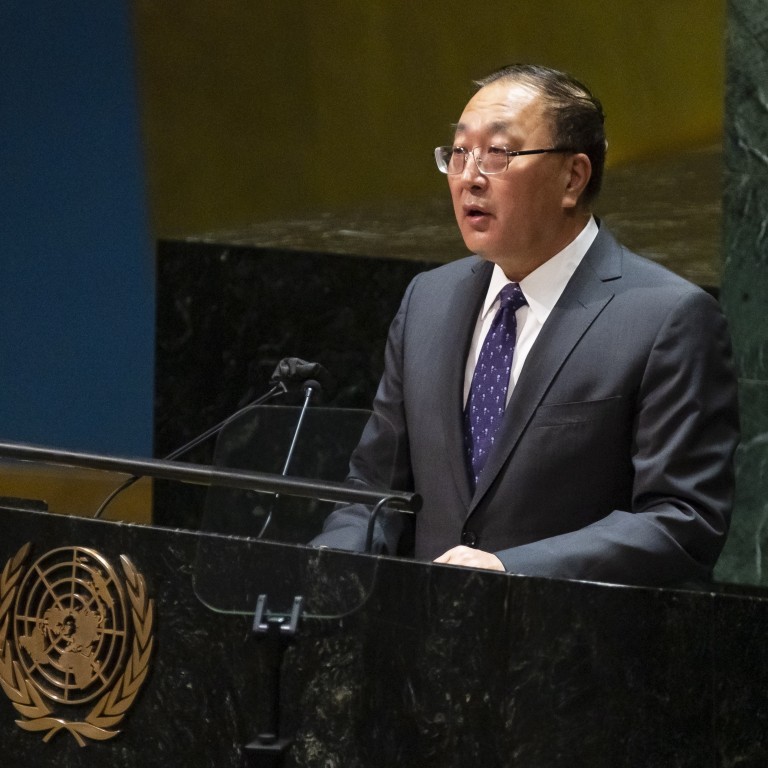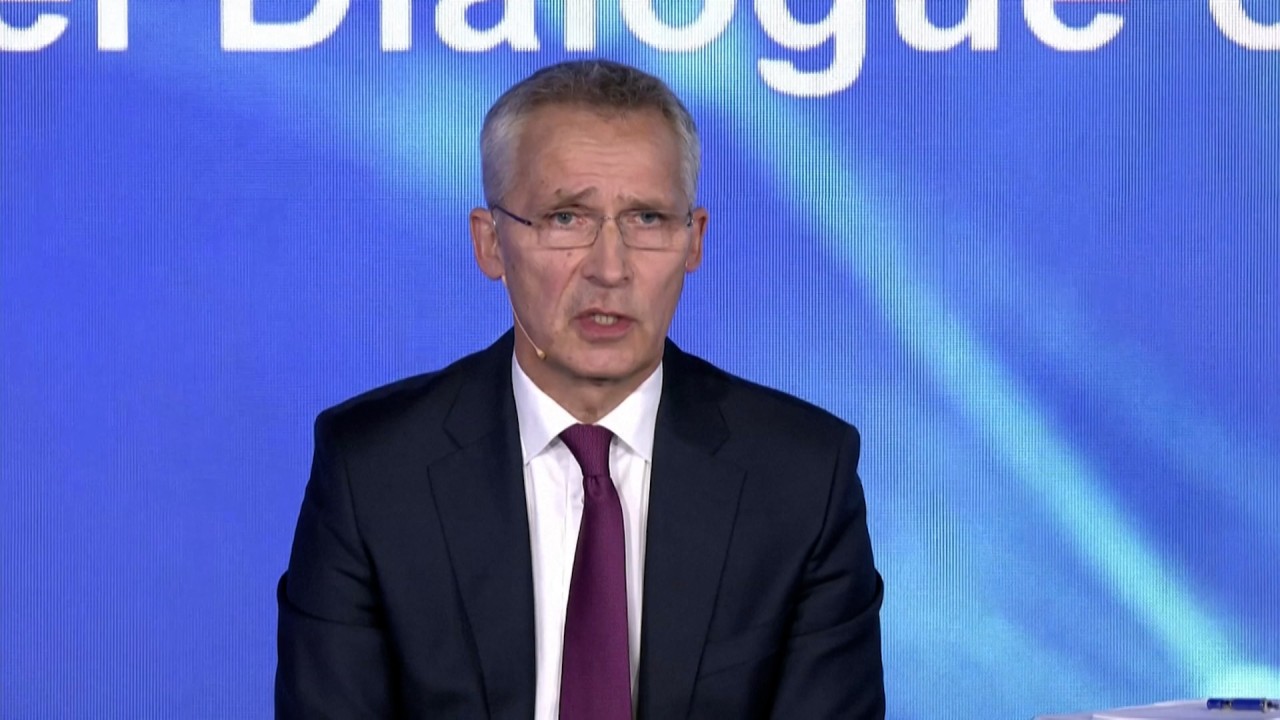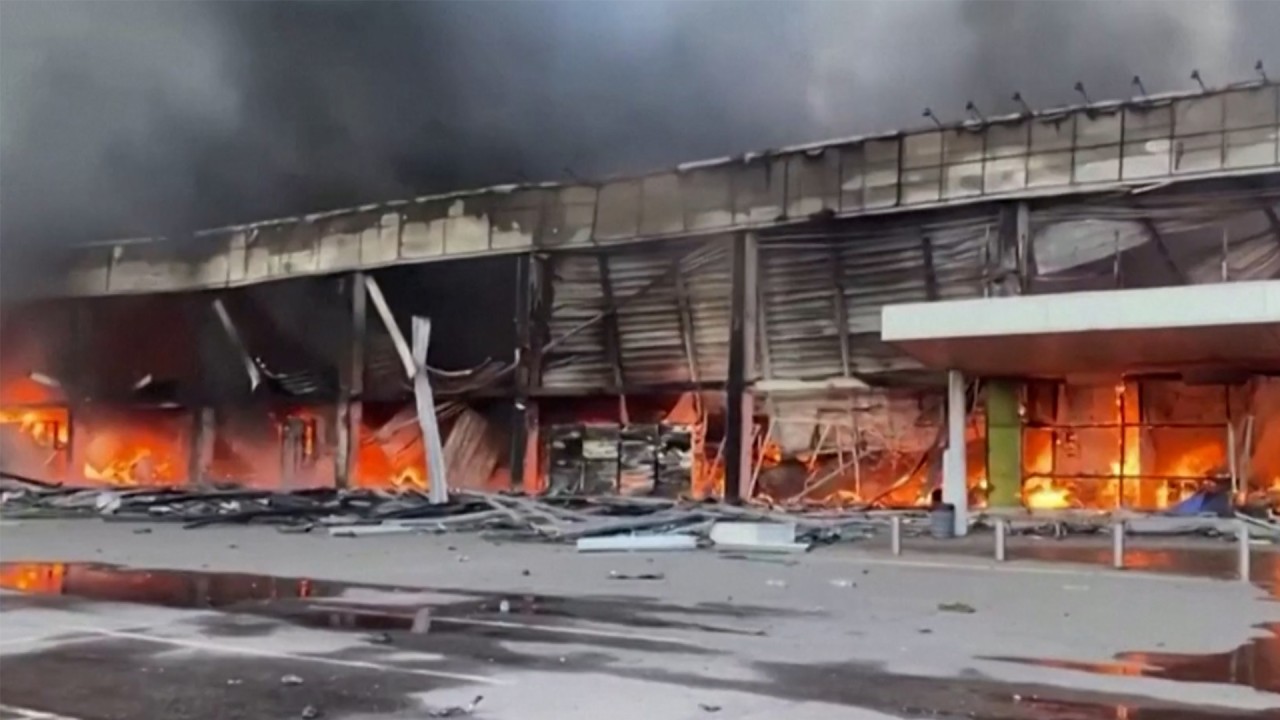
China tells UN expansion of Nato, or a Nato-like body, into the Asia-Pacific will stir up conflict
- Beijing is concerned US is building an Asian version of Nato as Australia, Japan, New Zealand and South Korea attend the Nato meeting for the first time
- Washington wants Beijing to pressure Moscow into ending the war in Ukraine, ‘given its relationship with Russia’, says US national security adviser Jake Sullivan
“Nato’s five eastward expansions after the Cold War have not only failed to make Europe securer, but also sowed the seed of conflict,” Zhang said in a UN Security Council briefing on Ukraine on Tuesday.
“The kind of turmoil and conflict that are affecting parts of the world must not be allowed to happen in the Asia-Pacific.”
Zhang was speaking while Nato met in Madrid where the bloc is expected to release an updated strategic concept to replace the version adopted in 2010.
“The strategic concept described Russia as a strategic partner and did not refer to China,” US national security adviser Jake Sullivan said. This one “will speak very directly and in a clear-eyed way to the multifaceted challenge posed by the People’s Republic of China”.
Sullivan also said Washington wanted China to pressure Russia into ending the war in Ukraine. There was little evidence China was supporting Russia militarily or was violating sanctions imposed on Moscow after its invasion of Ukraine, but Sullivan said Beijing had to help stop the war.
“We believe that China cannot evade responsibility, given its relationship with Russia, for speaking more clearly to them,” he said.
Türkiye lifts its objections to Sweden, Finland joining Nato
Beijing is particularly concerned that Washington is building an Asian version of Nato as four partners in the region – Australia, Japan, New Zealand and South Korea – attend the Nato meeting for the first time.
There will also be a summit between the leaders of South Korea, the United States and Japan on Wednesday.
Zhang said Nato should not use the Ukraine war to create “worldwide bloc confrontation or a new cold war”.
“And [do] not to look for imaginary enemies in the Asia-Pacific or artificially create contradictions and divisions,” he said. “We firmly oppose certain elements clamouring for Nato’s involvement in the Asia-Pacific, or an Asia-Pacific version of Nato on the back of military alliances.
China, Nato and how the Ukraine war is spilling over into the Asia-Pacific
“Facts have fully borne out that sending weapons cannot bring about peace, nor can sanctions and pressurisation solve the security conundrum. Attempts to weaponise the world economy and to coerce other countries into taking sides will artificially divide the international community, and make the world even less secure,” Zhang said.



